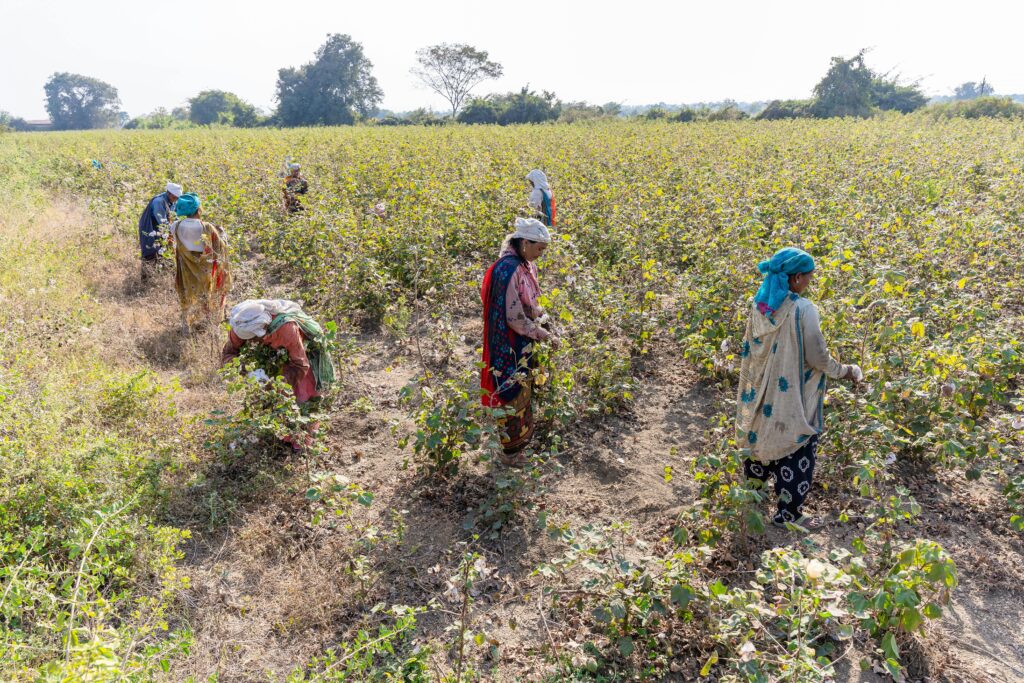
The Rise of Sustainable Cotton Farming
In recent years, the agricultural sector has witnessed a significant transformation through the adoption of sustainable practices. Sustainable cotton farming focuses on reducing the use of chemical inputs, managing water resources efficiently, and integrating eco-friendly crop management strategies. As the demand for organic and ethically sourced products grows, many leading brands and textile companies are committing to sourcing cotton produced through responsible agricultural practices.
Key Drivers:
- Environmental Conservation: Innovative techniques such as precision irrigation, integrated pest management (IPM), and organic fertilizers help mitigate water scarcity and reduce soil degradation.
- Economic Benefits for Farmers: Sustainable practices can lead to reduced input costs and improved crop yields, allowing farmers to benefit from premium pricing in the market.
- Consumer Demand: With consumers increasingly prioritizing eco-friendly products, brands that adopt sustainable cotton significantly enhance their market appeal and trustworthiness.
Innovative Techniques and Practices
Advancements in technology and agricultural research have paved the way for a new breed of cotton farming that is both environmentally sound and economically viable. Some of the most notable sustainable practices include:
- Organic Farming: Eliminating synthetic pesticides and fertilizers, organic cotton farming relies on natural processes and organic inputs to maintain soil fertility and plant health.
- Water-Efficient Irrigation Systems: Drip irrigation and other water-conserving techniques ensure that each drop of water is used efficiently, reducing waste and preserving local water resources.
- Crop Rotation and Biodiversity: Incorporating other crops into the farming cycle improves soil health, disrupts pest life cycles, and promotes a balanced ecosystem.
- Carbon Footprint Reduction: By optimizing field operations and leveraging renewable energy sources in farm equipment, sustainable cotton farming lowers overall greenhouse gas emissions.
These measures play a critical role in combating climate change and creating a resilient agricultural framework capable of withstanding environmental pressures.
Global Impact and Future Outlook
The transition to sustainable cotton farming is not just a local or regional trend but a global movement that promises lasting environmental and economic benefits. Countries with long histories in cotton production—such as India, China, and the United States—are at the forefront of implementing these practices, supported by both governmental policies and international partnerships.
Economic and Social Benefits:
- Empowerment of Small-Scale Farmers: By adopting sustainable methods, farmers can achieve better market access and higher profitability, ensuring long-term community development.
- Enhanced Brand Image: Textile companies that invest in sustainable sourcing build stronger consumer trust, turning eco-friendly cotton into a key differentiator in the competitive market.
- Regulatory Incentives: Governments are offering tax benefits, subsidies, and technical assistance to promote sustainable agriculture, which fosters innovation and knowledge-sharing among producers.
Looking ahead, the promise of sustainable cotton farming is bright. Continuous improvements in technology, coupled with stronger consumer and corporate commitments to environmental sustainability, are setting the stage for transformative change across the industry. As research and innovation advance, the scalability of these practices will likely increase, making sustainable cotton farming an industry standard worldwide.
Key Takeaways
- Environmental Sustainability: Reduced chemical use, water conservation, and improved soil health.
- Economic Viability: Increased profitability for farmers and enhanced market value for sustainable products.
- Global Leadership: Countries worldwide are partnering to promote and scale sustainable farming practices.
- Future Trends: Growing research and development efforts will continue to drive efficiency and innovation in the cotton industry.
Sustainable cotton farming represents a promising stride toward a greener, more resilient future for both the environment and the global textile market. This shift not only ensures a healthier planet but also creates tangible economic benefits for communities involved in the cotton industry.